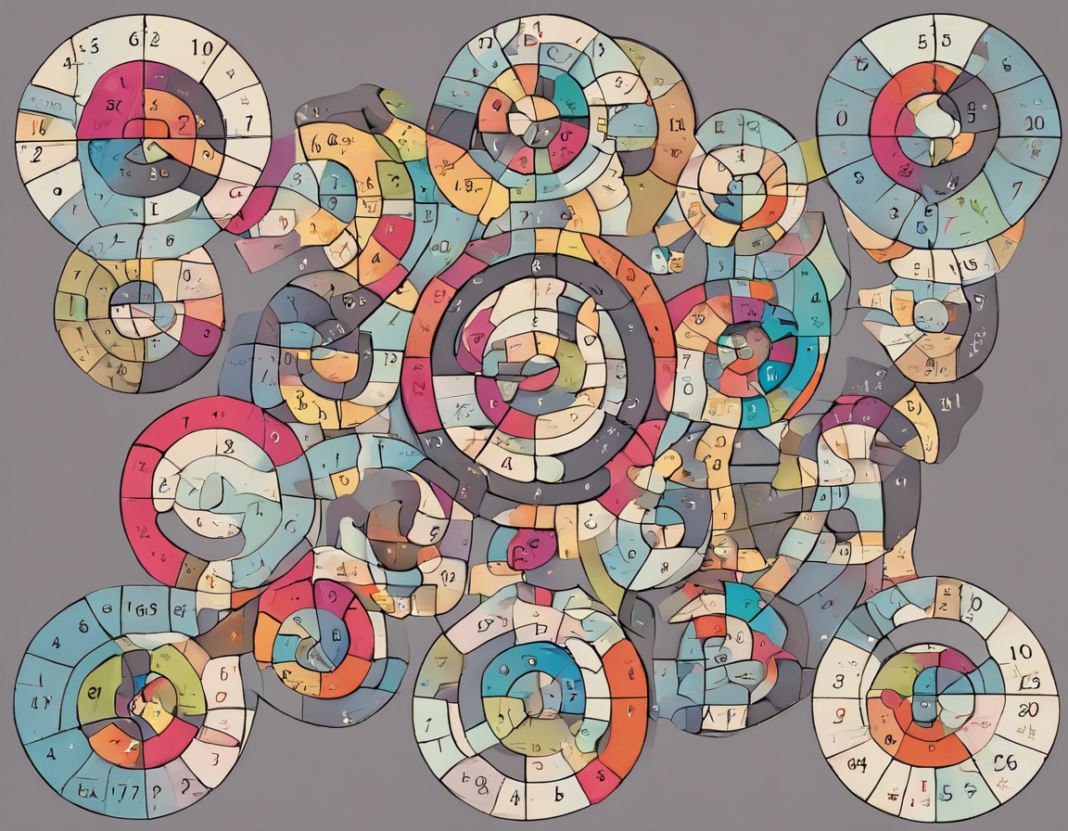In the realm of mathematics, numbers play a fundamental role as they help us quantify and make sense of the world around us. Among various types of numbers, whole numbers and rational numbers stand out as essential concepts. Understanding the relationship between these two sets of numbers is crucial for anyone looking to deepen their mathematical knowledge. In this comprehensive guide, we will explore the connection between rational numbers and whole numbers, debunk common misconceptions, and provide clarity on this intriguing topic.
Whole Numbers: The Basics
Let’s begin by defining what whole numbers are. Whole numbers are a set of numbers that start from zero and continue infinitely in the positive direction. In essence, whole numbers are the most basic form of counting numbers. The set of whole numbers can be represented as {0, 1, 2, 3, 4, …}.
Rational Numbers: An Overview
Moving on to rational numbers, these are numbers that can be expressed as a ratio of two integers, where the denominator is not equal to zero. This means that any number that can be written in the form a/b, where a and b are integers and b is not equal to zero, is a rational number. Rational numbers include integers, fractions, terminating decimals, and repeating decimals.
Debunking the Misconception
One common misconception is that all rational numbers are whole numbers. However, this statement is not accurate. While it is true that whole numbers are a subset of rational numbers, not all rational numbers are whole numbers. In fact, whole numbers are a specific subset of integers that do not include fractions or decimal numbers. Thus, while whole numbers can be classified as rational numbers, the reverse is not true.
Relationship Between Rational and Whole Numbers
To better understand the relationship between rational numbers and whole numbers, it is crucial to recognize that whole numbers can be expressed as fractions. For instance, the whole number 3 can be written as 3/1, where the denominator is 1. This representation highlights that whole numbers are indeed a subset of rational numbers.
Inclusion of Fractions and Decimals
Expanding on the concept, it is important to note that rational numbers encompass not only whole numbers but also fractions and decimals. Fractions such as 1/2 or 5/7 are considered rational numbers but do not fall under the category of whole numbers. Similarly, decimals like 0.25 or 6.3333… are rational numbers but are not classified as whole numbers.
Converting Whole Numbers to Rational Form
As mentioned earlier, whole numbers can be converted into rational form by setting the denominator to 1. This process underscores the relationship between whole numbers and rational numbers. By expressing whole numbers as fractions, we demonstrate that they are indeed part of the larger set of rational numbers.
Irrational Numbers: The Distinction
To further clarify the concept, it is essential to touch upon irrational numbers. Irrational numbers are numbers that cannot be expressed as fractions or ratios of integers. Examples of irrational numbers include π (pi) and √2 (square root of 2). Unlike rational numbers, irrational numbers cannot be written in the form a/b where a and b are integers. Therefore, irrational numbers are distinct from both rational and whole numbers.
Frequently Asked Questions (FAQs)
1. Can a whole number be a rational number?
Yes, a whole number can be considered a rational number since it can be expressed as a fraction with the denominator as 1.
2. Are all rational numbers whole numbers?
No, not all rational numbers are whole numbers. Whole numbers are a subset of rational numbers that do not include fractions or decimals.
3. What sets irrational numbers apart from rational numbers?
Irrational numbers cannot be expressed as fractions or ratios of integers, distinguishing them from rational numbers which can be written in the form a/b.
4. Can fractions be classified as whole numbers?
No, fractions are distinct from whole numbers. Whole numbers are integers without fractions or decimals.
5. Do rational numbers include repeating decimals?
Yes, rational numbers can include repeating decimals such as 0.3333… which are non-terminating but have a repeating pattern.
Conclusion
In conclusion, while whole numbers are indeed a subset of rational numbers, it is crucial to recognize that not all rational numbers are whole numbers. By understanding the distinctions between these two sets of numbers, we can enhance our grasp of mathematical concepts and foster a deeper appreciation for the intricacies of number theory. Remember, numbers are not just entities for counting; they are key components that unlock the mysteries of the universe.









